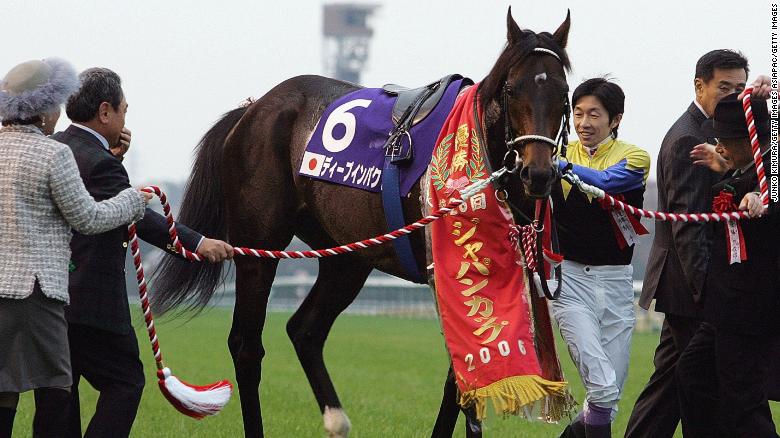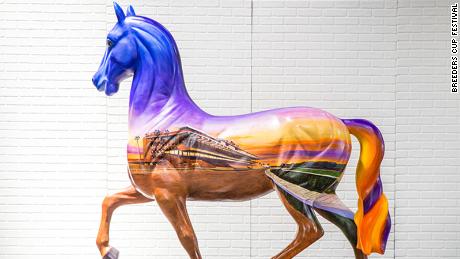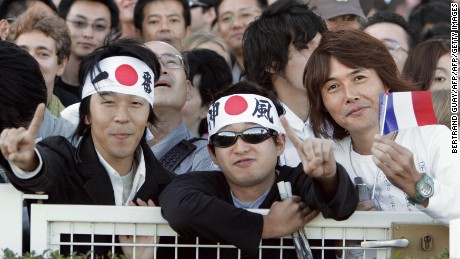Story highlights
- Japan's racing industry has grown rapidly
- Aided by betting and imported stallions
- Japan Cup attracts huge crowds each year
(CNN)In an industry dominated by Europe and North America, Japan has emerged as a superpower in horse racing.
Tradition dictates that the likes of USA, France, and Ireland -- where there are 50 thoroughbred horses per 10,000 people -- rear the world's finest racing steeds.
But over the past decade, Japan has bucked that trend. The country produced just under 50,000 race horses in 2016, and races attracted over 6 million people that year according to the Japan Racing Association (JRA).
The betting industry, meanwhile, has also boomed, and it was estimated that Japan wagered $22.5 billion in 2015.
"The horse racing industry is getting bigger and bigger," trainer Mitsu Nakauchida tells CNN Winning Post.
"[In Japan] we have powerful owners who are buying a lot of stallions and mares from all over the world. It's just getting bigger every year."
Importing a 'champion'
Nakauchida, who learned his trade in Ireland, the UK, and California before moving back to Japan, says much of this success owes to importing some of the world's finest race horses -- and one in particular.
"I think Sunday Silence changed the last 15 or 20 years. We don't have to bring in as many stallions as we used to before," explains Nakauchida.
"He was the champion horse in America and he was imported into Japan and he was the champion stallion for the last 10 years here I think.
"Then he produced Deep Impact, the most significant stallion in Japan at the moment."
American thoroughbred Sunday Silence won the Kentucky Derby and Preakness Stakes in 1989, but failed to complete the Triple Crown when he finished second to Easy Goer at the Belmont Stakes. He backed up those two wins by claiming the Breeders' Cup Classic later that year.
His introduction to Japanese breeding had a knock-on effect for future generations, most notably with Deep Impact becoming the first horse in 11 years to win the Japanese Triple Crown in 2005.
"The big players in Europe and America are sending very good mares, proven mares, to Deep Impact, and they're producing good offspring," explains Nakauchida.
"Deep Impact is more famous than any other stallion at the moment I think."
Betting profits
There's another secret to Japan's horse racing success, though, and that lies with the fans.
The public are only allowed to bet on a few sports and horse racing is one of them; 2016 was the first time punters could put money on foreign races.
The profit generated by betting is reinvested into prize purses of JRA races. It has helped the country create some of richest races in the world, and the Japan Cup now boasts $5.6 million in prize money -- $2.6 million of which goes to the winner. But the money is invested elsewhere as well.
"We have a huge turnover in betting that really goes back to breeders and owners so they can spend more on individual horses," says Nakauchida.
"I think that's a biggest factor to the racing industry growing so big in Japan. It's huge money in Japan compared to any other country ... we do invest quite a lot, but what's coming back is big as well."










